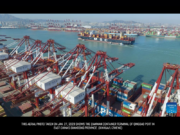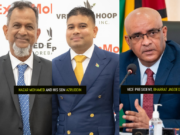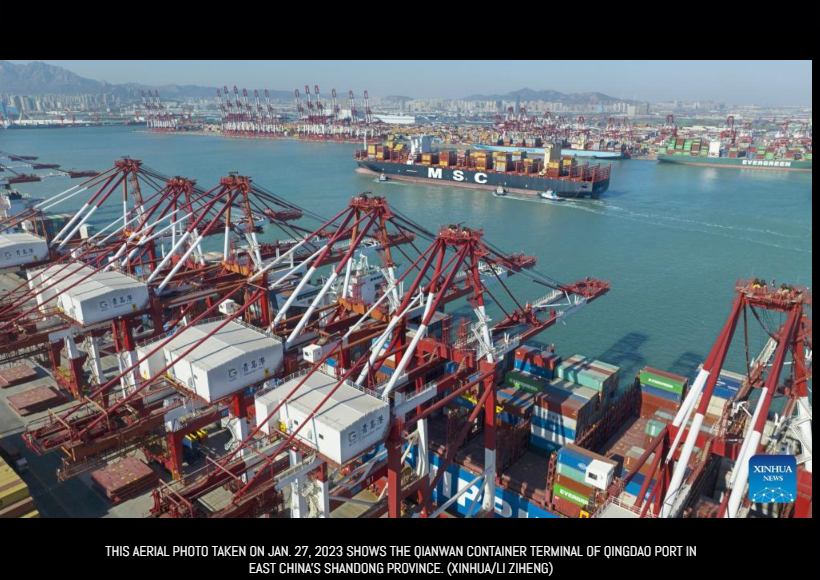Guyanese shipping and logistics giants, Muneshwers Ltd. and John Fernandes Ltd. are working to deliver the nation’s first deepwater port. The two firms’ joint venture, Cranes Guyana Inc., is in advanced talks with a financial institution to secure funding for the project, according to Muneshwers’ General Manager, Chandradat Chintamani.
Speaking at the 2025 Local Content Summit at the Marriott Hotel on Tuesday, Chintamani said the companies “have gone a far way in terms of working with the government in identifying the area and coming up with the development plan for this,” though he did not disclose where the facility will be built.
Once an agreement is signed with the government, Chintamani said Cranes Guyana Inc. expects to have the first few berths of the facility operational within 18 months, allowing for vessel access and cargo transshipments through Guyana.
The country currently depends heavily on transshipment through regional ports in Trinidad and Jamaica, which increases costs and creates delays, particularly during peak shipping seasons.
Both Muneshwers and John Fernandes are among the most established logistics firms in the country and are positioning the project as part of their commitment to modernizing the shipping sector.
The Guyana government has long identified the development of a deepwater port as a priority for improving trade logistics, reducing freight costs, and connecting with northern Brazil’s vast market. The government is constructing a road from the coast to the Brazil border to facilitate trade integration.
Vice President Bharrat Jagdeo has said that enabling direct access for large cargo vessels could cut shipping costs by as much as 60%, and position Guyana as a regional hub for re-exporting goods throughout the Caribbean and South America.
While the government has said it prefers the port to be fully privately financed, it has not ruled out becoming a co-investor. Chintamani did not indicate whether the state would take an equity stake in the project.
The viability of such a facility, Jagdeo has said, will depend in part on capturing trade flows in and out of Brazil to ensure sufficient revenue generation and returns for private investors.













